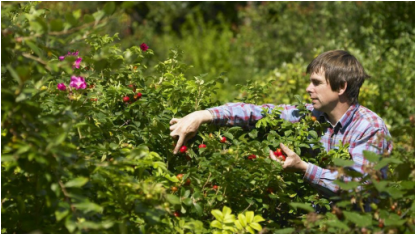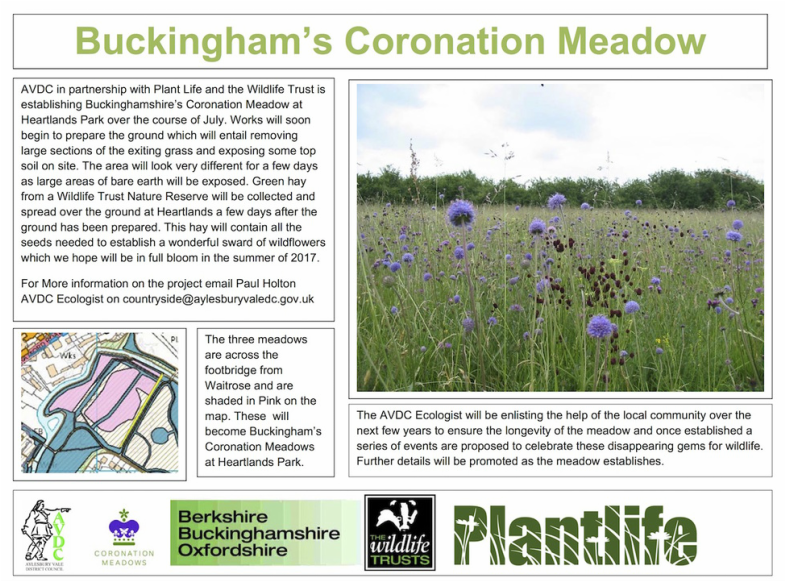 Posted on January 19, 2016 by Dartington The Dartington Hall Trust has co-signed an open letter to the Secretary of State for Environment, Food and Rural Affairs, Elizabeth Truss MP, requesting a review of the government’s position on the use of agroforestry methods in England. The Trust is just one of a large number of organisations including the Royal Forestry Society, The Woodland Trust and The Permaculture Association who believe the benefits of agroforestry practices merit greater consideration by policy-makers. In the letter, the co-signatories state that “…if adopted (agroforestry) could make a positive contribution to climate change mitigation, flood prevention and agricultural productivity… We believe that the environmental benefits, not least in relation to the prevention of flooding and water management generally, and the potential uptake of agroforestry have been underestimated”. Martin Crawford of the Agroforestry Research Trust on the Dartington estate Agroforestry is the practice of integrating the cultivation of trees, crops and livestock on the same agricultural area for greater productivity and biodiversity. Dartington is in the process of exploring the possibilities of the practice, and 50 acres of agroforestry will be planted on the estate later this year at Old Parsonage Farm. The initiative is part of the estate’s Land Use Review in action, and aims to explore and promote the possibilities of this little-understood form of agriculture. The Dartington estate is also home to the Agroforestry Research Trust, cultivators of a self-sustaining ‘forest garden’ containing a very diverse number of species and thus very resilient to pests, diseases and the vagaries of the climate. This lack of understanding is addressed in the letter as an issue: “…the premature rejection of agroforestry options by your predecessor was at least in part, based on lack of familiarity … with the subject itself… We would like to invite you to visit a farm in East Anglia where commercial agroforestry is practiced, so as to view for yourself the merits of such systems and meet with stakeholders and farmers involved and interested in adopting agroforestry.”
Inhabit: A Permaculture Perspective offers stories and solutions for meeting human needs while simultaneously restoring the health of the ecosystems we live in.
Posted by David Boyle
It is now nearly 12 years since I published my book Authenticity: Brands, Fakes, Spin and the Lust for Real Life. I can't say I exactly won the argument at the time, which was that the demand for authenticity - and especially in food - was a long-term major trend. I also argued that it wasn't a con. It wasn't about the big food manufacturers pulling a fast one, just by putting a picture of an old-fashioned farm on their packaging (see my more recent take on it in my ebook The Age to Come). Another book, also called Authenticity, has been published by Harvard University Press, which makes the call the other way. It was a tough argument. I had a hard time with it, from people who felt I was being hoaxed to people (Vanessa Feltz springs to mind) who just got cross with me. Then I opened a recent copy of Fortune magazine and realised that I was right, after all. The demand for healthy, fresh, 'real' food is now so powerful in the USA that it is turning the food industry upside down, and beginning to re-localise the production of food. Hershey's are taking BST milk, GM ingredients and artificial flavours out of their chocolate bars. Campbell's Soup has bought baby food maker Plum Organics, and - to keep its authentic spirit - has made it a public benefit corporation. There are also - according to a separate article - now nearly 8,300 farmers markets in the USA, having grown at an average of 19 per cent a year for 19 years. That is one hell of a lot of money shifting out of big food corporations and into small-scale local production. You can see signs of similar trends emerging here, but not nearly so fast. The 25 biggest food and drink corps in the USA have lost a total of $18 billion in market share since 2009. That seems to me to be good for the economy: it is $18 billion not going in mega-salaries, and dedicated to the wrong kind of efficiency, and shifting instead into local employment and innovation. This is what Campbell's CEO Denise Morrison said: "We understand that increasing numbers of consumers are seeking authentic, genuine food experiences, and we know that they are sceptical of the ability of large, long-established food companies to deliver them." As I predicted, this is hard for the big companies. To demonstrate the same kind of authenticity, they are buying up small, healthy food producers, only to find that - in the stultifying big company culture - their new purchase kind of shrivels up like an elderly organic lettuce. You can see something similar happening in the beer market. It is an overwhelmingly healthy sign - forcing the big food corporations to adapt and change or to die out. I hope something similar emerges here fast - and, perhaps, even in banking. It is even happening in the energy market, but extremely slowly. But the mere fact that it is possible at all - that we are not locked into buying from semi-monopolies as much as we feared we were - is a heartening thought on a less than heartening day. Posted by David Boyle at 10:04 Published on the 11 October 2013
Plans for a communal Buckingham Woodland Garden have received a huge boost after the Local Area Forum agreed to donate nearly £3,000 towards the project. The Buckingham Transition project to provide a long-term haven for families within the community has been informed of the grant from the forum, which works with local people to improve neighbourhoods for the benefit of all residents. The aim is to develop a sustainable area of land at Heartlands by the River Great Ouse near the Moorhen Way estate. John Mortimer, a member of Transition Buckingham said: “The initial concept was looking for land for local people to grow things communally, not like an allotment but a single garden where people would contribute to it and reconnect to where our food comes from as a community. “The beauty of it is that everything from the woodland will be edible and over time it will become low maintence. “We want to fill the area with herbs and shrubs where children can see all sorts and pick fruit which they can then use to put in things like cakes and other meals.” As well as a fruit-bearing eco-system, Buckingham Transition wants to make it a pleasant place to go with parks and benches in the peaceful river surroundings. But Mr Mortimer believes the total cost will be around £5,000 over five years. In the winter the group will host a Buckingham market stall where trees will be available for sponsor. Sponsors will then be able to care for and help to maintain their tree in the woodland project. For more information visit buckinghamtransition.co.uk |
AuthorWrite something about yourself. No need to be fancy, just an overview. Archives
May 2023
Categories |
| Reinventing work through new ways of working |
Proudly powered by Weebly

 RSS Feed
RSS Feed